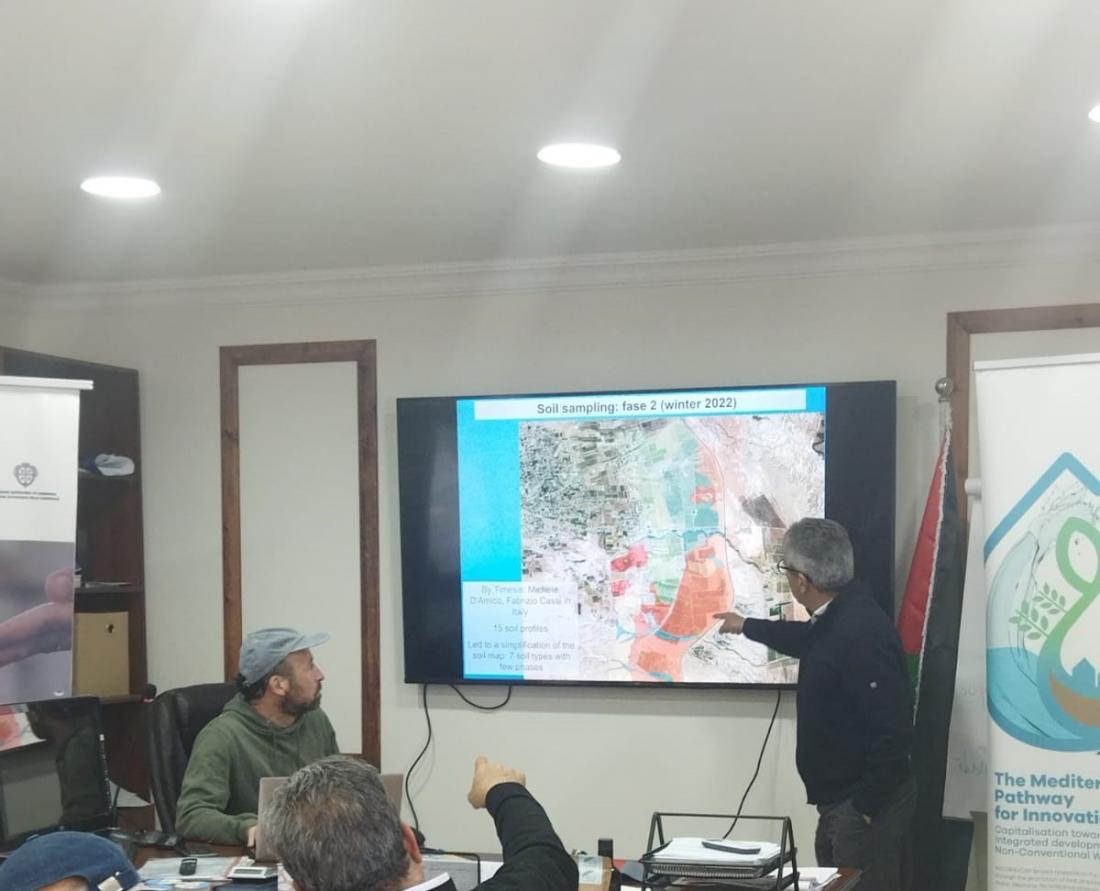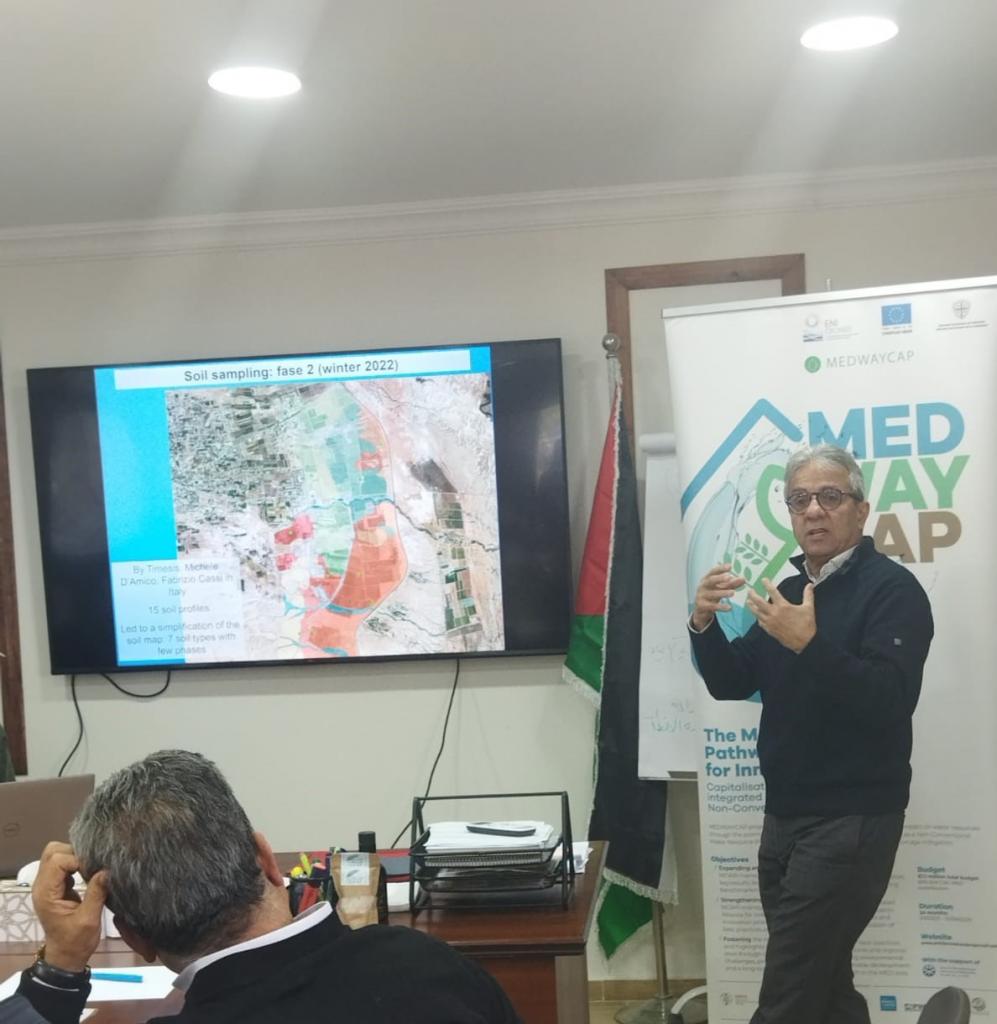MEDWAYCAP Palestine: Mutual learning workshop to debate farmers' main challenges related to soil salinity and scarcity of agricultural resources

Farmers, local government institutions, international donors and companies shared their experiences to discuss how to face the challenges in the Jericho Valley.
About 30 participants from different sectors, including final beneficiaries actively participate in the Mutual Learning Workshop the past February 15, 2023 hosted by Palm Farmers Association and organized by Palestinian Wastewater Engineer Group (PWEG) partner of MEDWAYCAP.

Farmers from the Jordan Valley, national stakeholders from the Directorate of Agriculture, engineers and technicians from the Jericho Municipality, and international development agencies (Japan International Cooperation Agency - JICA and Italian Agency for Development Cooperation - AICS Jerusalem) attended the event and actively participated in the discussion. Valuable data and results of soil and agronomic studies carried out in the Jordan Valley by TIMESIS (an Italian company with expertise in pedology, agronomy and forestry) were shared and discussed during the workshop.

In particular, Prof. Michele D'amico of TIMESIS presented the soil maps of 4000 donums and the best practices to resist soil salinity in the Jordan Valley, stimulating the debate after sharing the results and recommendations with the other participants.
Eng. Monther Hind (PWEG), already coordinator of the MEDISS project, moderated the whole workshop, sharing from the beginning the broader overview for addressing the main challenges to be faced during the debate that was open after the presentations.

The high and multidisciplinary level of the participants allowed for a fruitful discussion and gave the participants an understanding of the main challenges faced by farmers in Jericho and the importance of using Non-Conventional Water Resources (NCWR) for irrigation.
The workshop provided an opportunity to discuss local policies on water management, environmental sustainability and sustainable development in order to promote the integration of NCWR into the water management system and related business opportunities in the context of the circular economy.

The conclusion of this mutual learning workshop will contribute to the main objective of the MEDWAYCAP project, which is to transfer innovations and outputs resulting from cross-border cooperation between local and regional authorities and potential financial organisations. It promotes the enforcement of some regulations and legal provisions governing the use of NCW and, more importantly, creates the basis for an in-depth discussion on better water governance leading to actual improvements.







